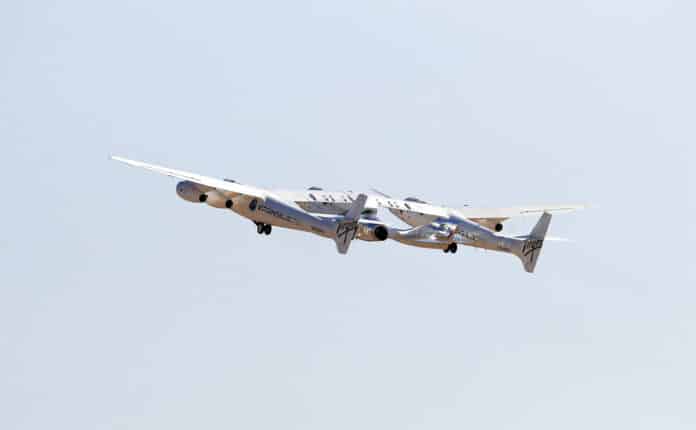Sir Richard Branson has won the space race — for now. On Sunday the British mogul and four of his employees were among the first civilian passengers on a first private, commercial aircraft into space. The trip was relatively short — the entire flight took about 90 minutes, with just a few minutes in space.
Branson’s bragging rights will last forever, however. He moved up is launch date by a couple of months to beat Jeff Bezos, after the Amazon founder announced his own space flight would take place July 20. A third contestant in the space race is SpaceX founder Elon Musk, whose voyage is slated for late this year or early 2022.
Each mission is different. Branson flew aboard a small craft that was lifted into the sky by a larger aircraft, and glided back to earth like the old space shuttles. Bezos will launch from a vertical rocket and reach a higher altitude than Branson before falling to earth tethered to parachutes. Musk will utilize a reusable crew Dragon capsule that will orbit the earth and visit the International Space Station before making a vertical landing under its own power.
The private space race has drawn plenty of criticism. Their efforts have been called “ego trips” and “an advertisement for a wealth tax,” for example.
The critics complain that the trio are burning up billions of dollars on vanity projects when they could be used to feed the hungry, battle homelessness or pay off the national debt.
Certainly, those are worthwhile short-term funding targets, and all three moguls already have foundations and donate billions to those purposes.
In the long run, however, these kinds of projects, and competitions, help improve life for virtually everyone on the planet, including the poor.
Financial reward always has been the best motivator for invention and innovation — Americans’ freedom to profit is perhaps the primary reason so many new ideas are developed here. Many of our greatest achievements were driven by the lure of financial gain.
Contests and prize money have long fueled advances in aviation. Even Charles Lindbergh was chasing the $25,000 Orteig Prize for the first successful flight across the Atlantic. Similar prizes for speed, distance and altitude inspired efforts that led to improved designs, more efficient fuel and safety innovations. Our own daily travel, on airplanes as well as cars, trucks and buses, is safer and cheaper because of their efforts. The private space race has drastically reduced the cost of missions, enabling companies to afford hiring them to place satellites in orbit. Just one generation ago phones were tethered to land lines and long-distance calls added hundreds of dollars to many phone bills. Today, because of those satellites, most people carry phones in their pockets and one can call anyone in the country at no additional charge. Low-income residents who couldn’t afford landline phones now carry cellphones that also serve as computers and have internet access.
We can see the great expense the billionaires spend in their race to space. Harder to see, but no less real, is how such efforts can improve and enrich life for everybody.




